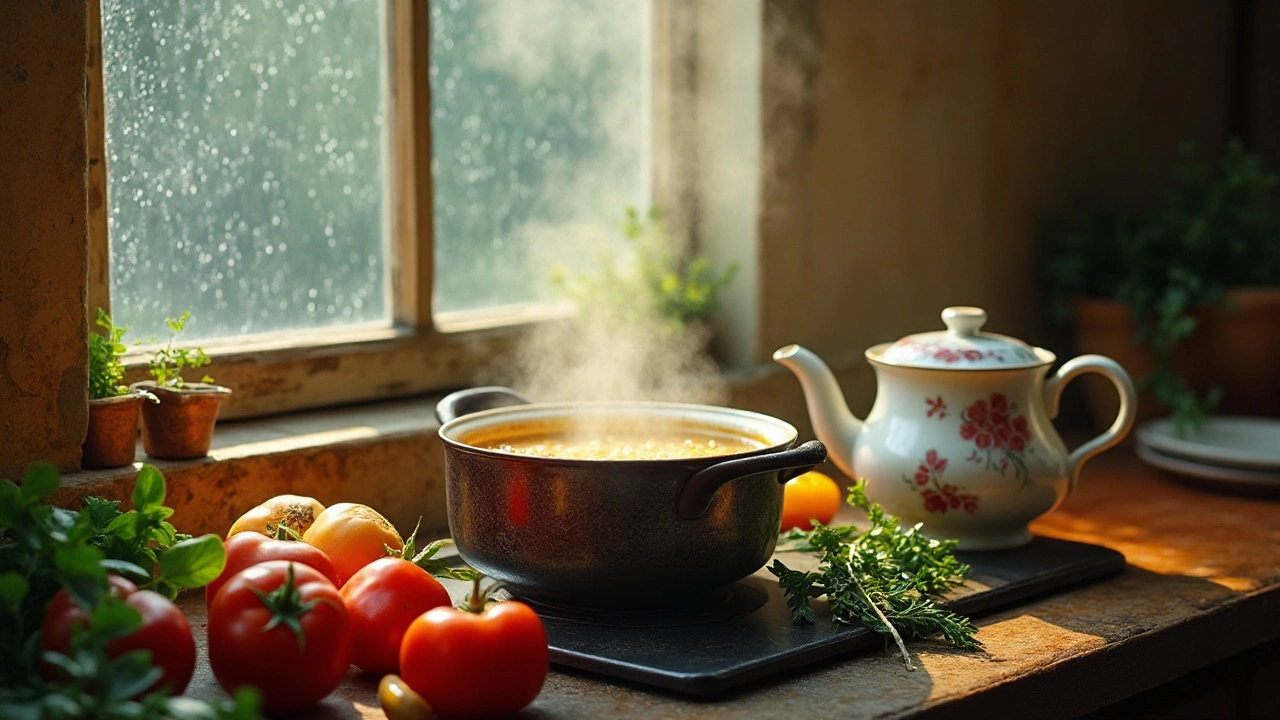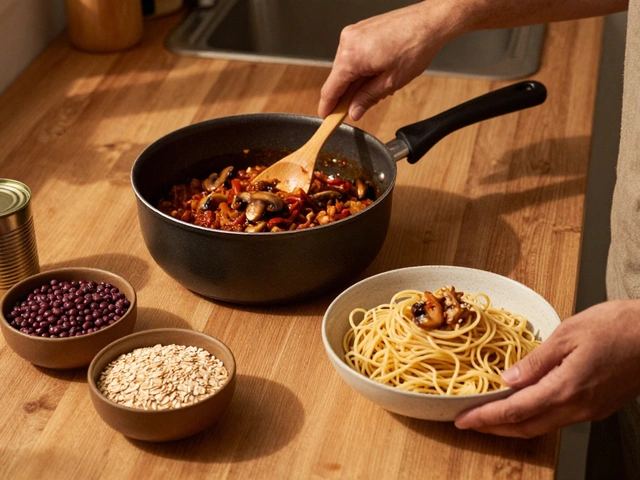Healing Made Simple: Everyday Foods and Tips to Boost Your Well‑Being
Ever wonder why a warm bowl of soup can lift your mood? It’s not magic – it’s the combo of nutrients, spices, and comfort that your body loves. In this guide we’ll break down a handful of easy‑to‑make dishes and practical habits that help you recover from a cold, calm a stressed mind, or just feel a bit healthier each day.
1. Spice Up Your Meals for a Natural Immune Boost
Spices like turmeric, ginger, and garlic are more than flavor boosters. Turmeric contains curcumin, a compound that fights inflammation. A quick turmeric‑golden milk (milk, a pinch of turmeric, honey, and a dash of black pepper) takes five minutes and gives your immune system a gentle nudge. Ginger works the same way – slice fresh ginger into your tea or stir‑fry, and you’ll feel a warming effect that eases sore throats.
Don’t forget garlic. A clove sautéed with onions releases allicin, which has antimicrobial properties. Add it to any one‑pot meal, from lentil soup to a simple rice pilaf, and you get a tasty dish that also supports your body’s defenses.
2. Comfort Foods That Actually Heal
Comfort food gets a bad rap, but the right choices can be genuinely restorative. Think bone broth – simmer bones with veggies for hours and you end up with a gelatin‑rich liquid full of collagen, minerals, and amino acids. Sip a cup when you feel run down; it helps repair gut lining and keeps joints lubricated.
Another go‑to is a veggie‑packed quinoa salad. Quinoa gives you complete protein, while colorful veggies add vitamins and antioxidants. Toss cooked quinoa with chopped carrots, bell peppers, a handful of spinach, olive oil, lemon juice, and a sprinkle of cumin. The result is a light, nutrient‑dense bowl that fuels recovery without feeling heavy.
If you’re battling indigestion, try a banana‑oat smoothie. Blend a ripe banana, half a cup of oats, a splash of almond milk, and a pinch of cinnamon. The fiber in oats and banana calms the stomach, while cinnamon helps regulate blood sugar.
Beyond food, small habits make a big difference. Stay hydrated – aim for eight glasses of water a day, or add herbal teas like peppermint or chamomile for extra soothing effects. Prioritize sleep; a consistent 7‑8 hour schedule lets your body repair itself.
Lastly, move a little each day. Even a ten‑minute walk after dinner improves circulation and reduces stress hormones. Pair the walk with mindful breathing: inhale for four counts, hold for four, exhale for four. This simple box breathing technique can lower anxiety in minutes.
Putting these ideas together doesn’t require a culinary degree. Pick one spice to add to your next meal, brew a quick bone broth, and sip a calming tea before bed. Over a week you’ll notice fewer cravings, steadier energy, and a faster bounce‑back from everyday aches.
So next time you feel under the weather, skip the processed snack and reach for a healing recipe. Your body will thank you with better digestion, stronger immunity, and a clearer mind – all without complicated gadgets or expensive supplements.

Top Comfort Foods to Soothe the Sick and Ailing
by Landon Weathers / 30 Jan 2025When illness strikes, comfort foods often become the soothing remedy many seek. From warm chicken soups to gentle teas, these dishes and drinks not only offer comfort but can also provide nutrition and hydration when needed most. This article delves into beloved comfort foods across cultures that have been known to help the sick recover, including simple homemade recipes to try at home. Discover the magic behind these meals and how they can ease the symptoms of various ailments.




